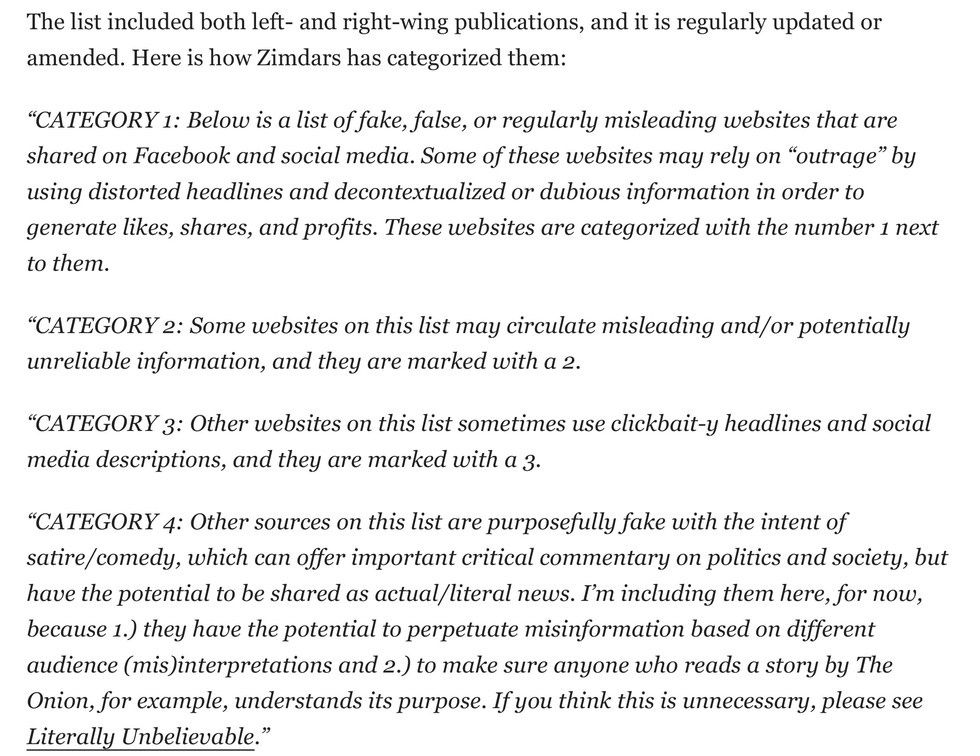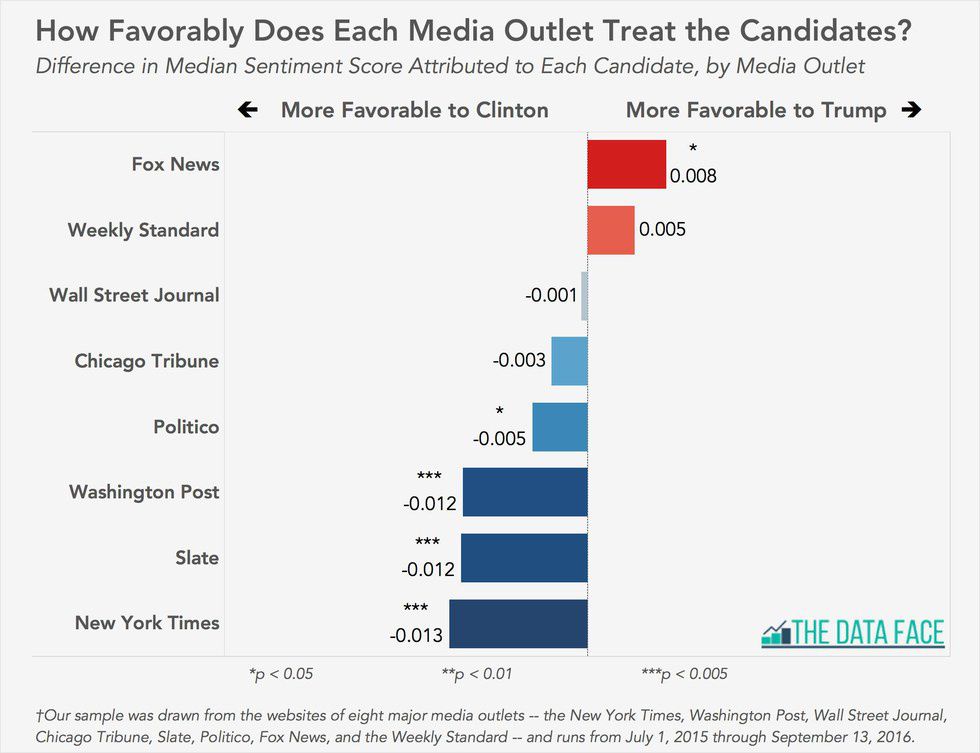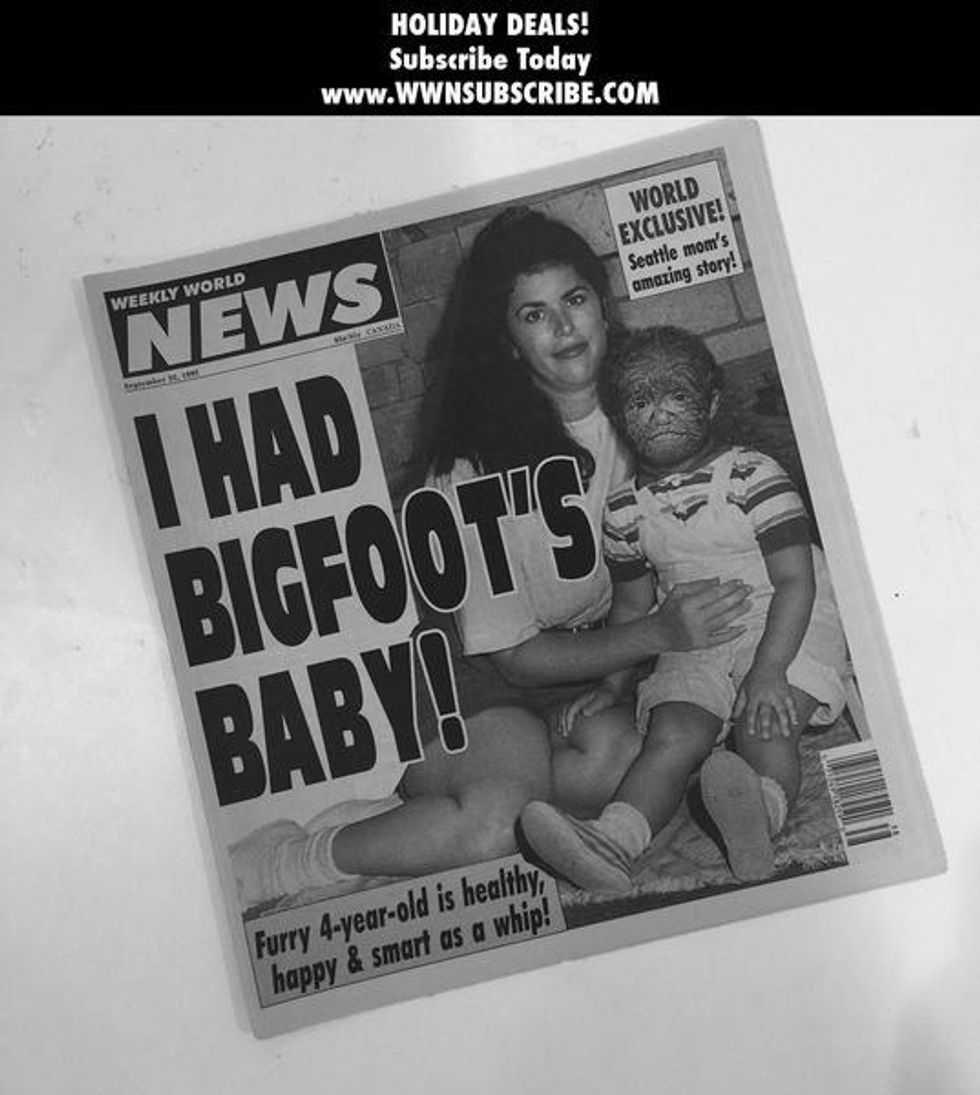Fake news is a hot topic lately. Left and right, agencies are accusing one another of publishing fake content. Thankfully, sites like "The Daily Dot" have published a list for average news consumers to be aware of when browsing the web. This is what "The Daily Dot" has to say:
Now that individuals browsing the net have Andrew Couts and "The Daily Dot" to thank for the internet protection, what should the people of the web do? I say that they should go browse some fake news.
This is not because I think that fake news is inherently important, informative, or quality. More often than not, fake news is a waste of time. However, many who take the time to browse both real and fake internet news have a better understanding in media literacy. This means that people looking at fake news are not as foolhardy to believe it as the net's guardians of truth would seem to believe. In fact, many people go on the internet with the expectation of faked headlines. It is no secret that Facebook is rife with fabricated stories, but it has not stopped the social media giant.
People consider broadcast television programming to be less than true. A big giveaway for the supposedly reliable medium is reality television. Many shows like "The Voice" and "Man Versus Wild" are notorious for not portraying the truth of their show to the audience. These shows seem to mean well; but, in reality, they are focused on profit rather than transparency and truth. At least the fake news articles coming out today have some selflessness in their search for the truth. People publishing these articles want to make the world a better place. They are just doing it in odd ways based on false claims.
Take the reptilian theory for example. According to "The Atlantic," twelve million Americans believe that lizard people run our government. While I think politicians can be snakes, I think these reptilian conspiracy individuals have missed the mark.
Along the lines of trustworthy news, it seems today that news has a bias towards informing individuals on what is true and what is not. News today defends or attacks politicians that news anchors deem as liars. News agencies with opposing viewpoints battle it out to reach the most viewers and align their political interests with whatever side they claim to be is most honest. The United State's latest election is a critical point for discussing media bias. "The Washington Post" compiled this infographic to display some of the United State's biggest media companies and their interpreted bias:
Source: https://www.washingtonpost.com/news/monkey-cage/wp...
Whether or not this infographic displays the entire truth of the media is up for debate. But if major news agencies can have a bias in their programming that reaches millions, is it not fair that individuals posting their fake news bias be able to reach the masses without losing the freedom of speech?
When I was little, it seemed the only way to get fake news was in the checkout lane of a drugstore. In those checkout lanes among the tabloids and the racks of candy and gum, there was the most credible news source for my developing brain. "Weekly World News" provided me with all of the big headlines I needed as a child. It made me want to learn more news about bat boys, alien babies, and presidents being taken up in UFOs. Sadly today, all the people of the United States have is the internet to get their fake news. That is also where "Weekly World News" sits in its final archival resting place.
It is amazing what kinds of news gets created with ingenuity and access to Photoshop. Fake news is not a bad thing, but it is not going to bring any value to an individual's life. Fake news is there to entertain people, so they can enjoy the absurdity of humans in everyday life. What is real and what is fake should be left to the eye of the beholder. Those today with internet access catch on quickly to the media that gets fed to them. They can pick out the fakes, the libel, and the calls to action from fake sources that will lead to trouble. Fake news is a blessing and should be appreciated as such.
If you do not trust my article, submit it to www.snopes.com.






















